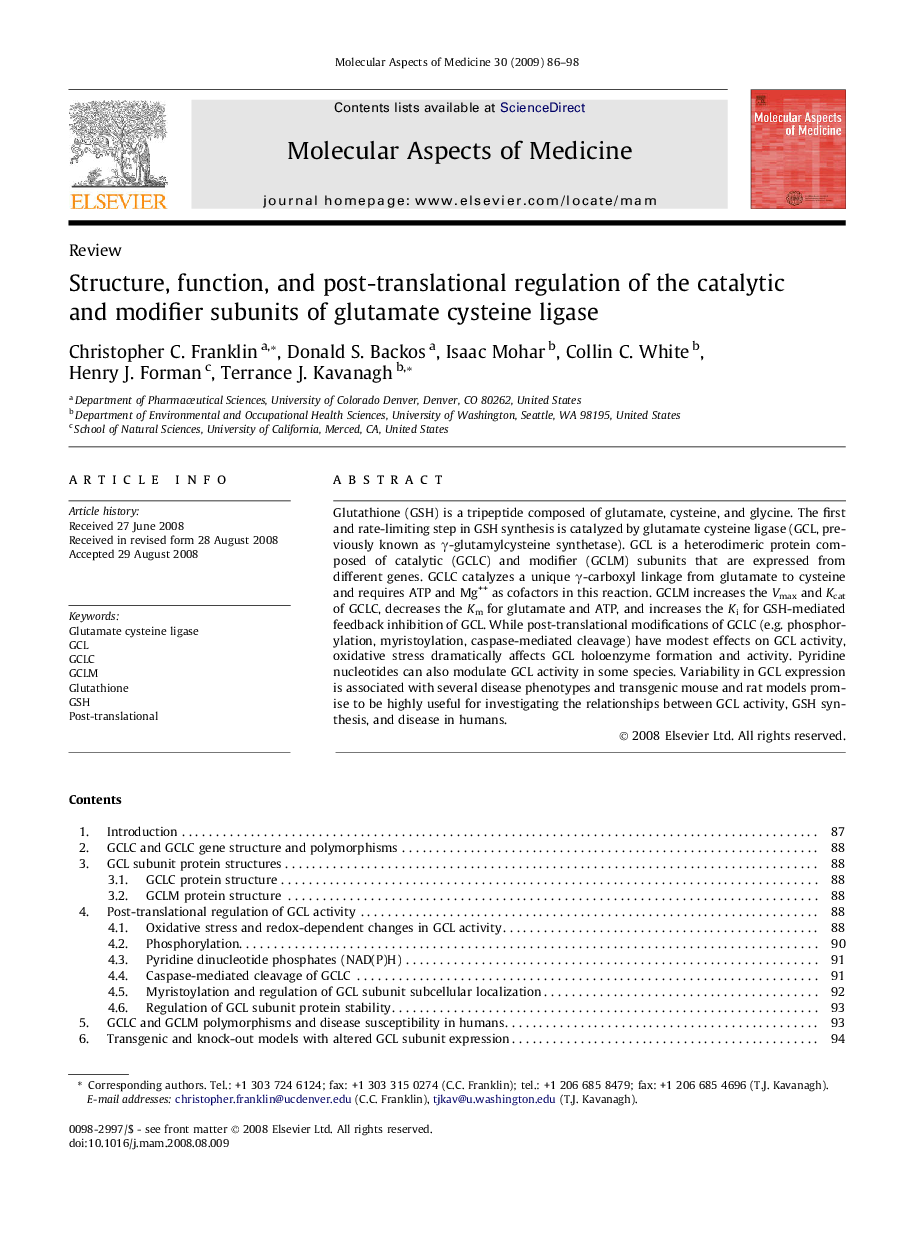| Article ID | Journal | Published Year | Pages | File Type |
|---|---|---|---|---|
| 1995898 | Molecular Aspects of Medicine | 2009 | 13 Pages |
Glutathione (GSH) is a tripeptide composed of glutamate, cysteine, and glycine. The first and rate-limiting step in GSH synthesis is catalyzed by glutamate cysteine ligase (GCL, previously known as γ-glutamylcysteine synthetase). GCL is a heterodimeric protein composed of catalytic (GCLC) and modifier (GCLM) subunits that are expressed from different genes. GCLC catalyzes a unique γ-carboxyl linkage from glutamate to cysteine and requires ATP and Mg++ as cofactors in this reaction. GCLM increases the Vmax and Kcat of GCLC, decreases the Km for glutamate and ATP, and increases the Ki for GSH-mediated feedback inhibition of GCL. While post-translational modifications of GCLC (e.g. phosphorylation, myristoylation, caspase-mediated cleavage) have modest effects on GCL activity, oxidative stress dramatically affects GCL holoenzyme formation and activity. Pyridine nucleotides can also modulate GCL activity in some species. Variability in GCL expression is associated with several disease phenotypes and transgenic mouse and rat models promise to be highly useful for investigating the relationships between GCL activity, GSH synthesis, and disease in humans.
